Intermittent Fasting How Long Should You Do It For
Intermittent Fasting How Long Should You Do It For

Intermittent fasting
for beginners
- What is intermittent fasting?
- Weight loss
- Benefits
- How to
- FAQ
- Get started
- Learn more
Intermittent fasting involves cycling between periods of fasting and eating — and it's recently become very popular. Not only was it the "trendiest" weight loss search term in 2019, it was also prominently featured in a review article in The New England Journal of Medicine.
Intermittent fasting can provide significant health benefits if it is done right, including weight loss, reversal of type 2 diabetes, and many other things.1 Plus, it can save you time and money.
The goal of this beginner's guide is to provide everything you need to know about intermittent fasting, in order to get started.
Disclaimer: While intermittent fasting has many proven benefits, it's still controversial. A potential danger regards medications, especially for diabetes, where doses often need to be adapted. Discuss any changes in medication and relevant lifestyle changes with your doctor. Full disclaimer
This guide is written for adults with health issues, including obesity, that could benefit from intermittent fasting. Learn more.
People who should NOT fast include those who are underweight or have eating disorders like anorexia , women who are pregnant or breastfeeding , and people under the age of 18 . Learn more.
What is intermittent fasting?

Intermittent fasting – isn't that starvation?
No. Fasting differs from starvation in one crucial way: control. Starvation is the involuntary absence of food for a long time. This can lead to severe suffering or even death.2 It is neither deliberate nor controlled.
On the other hand, fasting is the voluntary avoidance of food for spiritual, health, or other reasons. It's done by someone who is not underweight and has enough stored body fat to live off. When done correctly, fasting should not cause suffering, and certainly never death.3
Food is easily available, but you choose not to eat it. This can be for any period of time, from a few hours up to a few days or – with medical supervision – even a week or more. You may begin a fast at any time of your choosing, and you may end a fast at will too.
Anytime you are not eating, you are intermittently fasting.4For example, you may fast between dinner and breakfast the next day, a period of approximately 12-14 hours. In that sense, intermittent fasting should be considered a part of everyday life.5
Consider the term "break fast." This refers to the meal that breaks your fast – which is done daily.
Rather than being some sort of cruel and unusual punishment, the English language implicitly acknowledges that fasting should be performed daily, even if only for a short duration.
Intermittent fasting is not something unusual but a part of everyday, normal life. It is perhaps the oldest and most powerful dietary intervention imaginable.6 Yet somehow we have missed its power and overlooked its therapeutic potential.
Learning how to fast properly gives us the option of using it or not.
To get started, either watch our brief video on intermittent fasting or keep reading below.
347,600 views Add as favorite
Intermittent fasting for weight loss
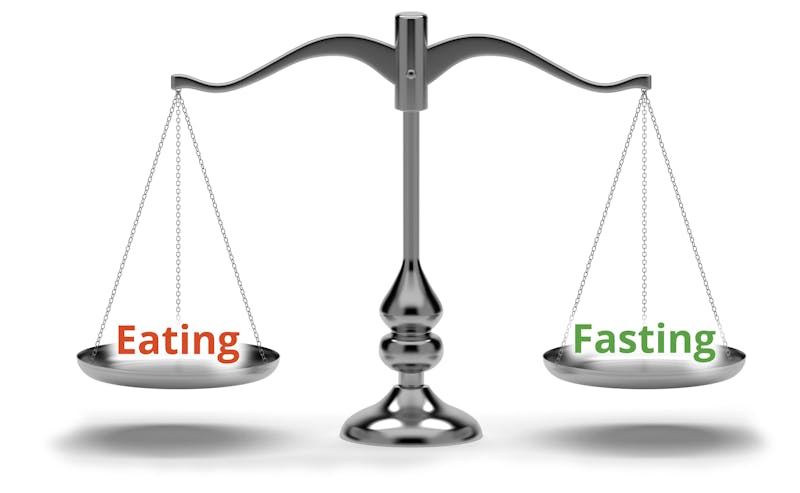
At its very core, intermittent fasting simply allows the body to use its stored energy, by burning off excess body fat.7
It is important to realize that this is normal and humans have evolved to fast for shorter time periods – hours or days – without detrimental health consequences.8 Body fat is merely food energy that has been stored away. If you don't eat, your body will simply "eat" its own fat for energy.
Life is about balance. The good and the bad, the yin and the yang. The same applies to eating and fasting. Fasting, after all, is simply the flip side of eating. If you are not eating, you are fasting.
Here's how it works:
When we eat, more food energy is ingested than can immediately be used. Some of this energy must be stored away for later use. Insulin is the key hormone involved in the storage of food energy.

Insulin rises when we eat, helping to store the excess energy in two separate ways. Carbohydrates are broken down into individual glucose (sugar) units, which can be linked into long chains to form glycogen, which is then stored in the liver or muscle.9
There is, however, very limited storage space for carbohydrates; and once that is reached, the liver starts to turn the excess glucose into fat. This process is called de-novo lipogenesis (meaning literally "making new fat").10
Some of this newly created fat is stored in the liver, but most of it is exported to other fat deposits in the body. While this is a more complicated process, there is almost no limit to the amount of fat that can be created.
So, two complementary food energy storage systems exist in our bodies. One is easily accessible but with limited storage space (glycogen), and the other is more difficult to access but has almost unlimited storage space (body fat).

The process goes in reverse when we do not eat. Insulin levels fall, signaling the body to start burning stored energy because no more is coming through food. Blood glucose falls, so the body must now pull glucose out of storage to burn for energy.
Glycogen is the most easily accessible energy source. It is broken down into glucose molecules to provide energy for the body's other cells. This can provide enough energy to power much of the body's needs for 24-36 hours. After that, the body will primarily be breaking down fat for energy.11
So the body only really exists in two states – the fed state and the fasted state. Either we are storing food energy (increasing stores), or we are burning stored energy (decreasing stores). It's one or the other. If eating and fasting are balanced, then there should be no net weight change.
If we start eating the minute we roll out of bed and do not stop until we go to sleep, we spend almost all our time in the fed state. Over time, we may gain weight because we have not allowed our body any time to burn stored food energy.12
To restore balance or to lose weight, we may simply need to increase the amount of time spent burning food energy.13 That's intermittent fasting.
In essence, intermittent fasting allows the body to use its stored energy. The important thing to understand is that there is nothing wrong with that. That is how our bodies are designed. That's what dogs, cats, lions and bears do. That's what humans do.
If you're eating every third hour, as is often recommended, then your body will constantly use the incoming food energy. It may not need to burn much body fat, if any. You may just be storing fat.14 Your body may be saving it for a time when there is nothing to eat.
If this happens, you lack balance. You lack intermittent fasting.
Intermittent fasting benefits
Intermittent fasting's most obvious benefit is weight loss.15 However, there are many potential benefits beyond this, some of which have been known since ancient times.16
The fasting periods were often called 'cleanses,' 'detoxifications' or 'purifications,' but the idea is similar – to abstain from eating food for a certain period of time. People believed that this period of abstinence from food would clear their systems of toxins and rejuvenate them.
Some of the purported health benefits of intermittent fasting include:17
- Weight and body fat loss18
- Increased fat burning19
- Lowered blood insulin and sugar levels20
- Possibly reversal of type 2 diabetes21
- Possibly improved mental clarity and concentration22
- Possibly increased energy23
- Possibly increased growth hormone, at least in the short term24
- Possibly an improved blood cholesterol profile25
- Possibly longer life26
- Possibly activation of cellular cleansing by stimulating autophagy27
- Possibly reduction of inflammation28
In addition, fasting offers many important unique advantages that are not available in typical diets.
While diets can complicate life, intermittent fasting may simplify it. While diets can take time, fasting saves time. While diets may be limited in their availability, fasting is available anywhere.
Here are even more reasons to try it, along with more details: The 7 practical benefits of intermittent fasting
Intermittent fasting results
-

Keto and intermittent fasting: 'I am completely blown away by the changes'
-

Intermittent fasting: down 42 pounds in 14 months
-

How Gino reversed his type 2 diabetes by doing the opposite
More intermittent fasting results
How to intermittent fast

Shorter fasts29 (<24hrs)
Intermittent fasting offers plenty of flexibility. You can fast for as long or short as you like, but fasts longer than a few days may require medical supervision.30 Here are some popular regimens. Generally, shorter fasts are done more frequently.
16:8
This way of doing intermittent fasting involves daily fasting for 16 hours. Sometimes this is also referred to as an 8-hour eating 'window.' You eat all your meals within an 8-hour time period and fast for the remaining 16 hours. Generally, this is done daily or almost daily.
For example, you may eat all your meals within the time period of 11:00 am and 7:00 pm. Generally, this means skipping breakfast, but some people prefer to skip dinner instead. Typically this involves eating either two or three meals within this 8-hour period.
20:4
This involves a 4-hour eating window and a 20-hour fast. For example, you might eat between 2:00 pm and 6:00 pm every day and fast for the other 20 hours. This would involve eating either one large, lengthy meal or two smaller meals within this period.
Learn more about shorter fasts
Longer fasts (>24 hours)
24-hour fasts
This way of doing intermittent fasting involves fasting from dinner to dinner (or lunch to lunch). If you eat dinner on day 1, you would skip the next day's breakfast and lunch and eat dinner again on day 2. This is also known as "one meal a day," or OMAD. It is generally done two to three times per week.
5:2 fast
This is the version of intermittent fasting that has the most scientific support, as most studies on intermittent fasting have featured similar advice.31 Dr. Michael Mosley popularized this variation of intermittent fasting in his book 'The Fast Diet.'
The 5:2 fast involves five regular eating days and two fasting days. However, on these two fasting days, you are allowed to eat 500 calories on each day. These calories can be consumed at any time during the day – either spread throughout the day or as a single meal.
Alternate-day fasting
Another related approach to 5:2 is to have "fasting" days with 500 calories not just twice a week, but every other day.
36-hour fasts
This involves fasting for the entire day. For example, if you eat dinner on day 1, you would fast for all of day 2 and not eat again until breakfast on day 3. This is generally 36 hours of fasting. This might provide a more powerful weight-loss benefit and may help avoid the temptation to overeat dinner on day 2.32
However, there are some risks involved with fasting more than 24 hours.
Extended fasting
The first rule of extended fasts is to always check with your health care provider to ensure you are not at risk for fasting complications.
Generally, for fasts greater than 48 hours, I recommend a multivitamin to avoid micronutrient deficiency. The world record for fasting is 382 days (although we don't recommend this!), and going 7-14 days may be possible for some people.33
I discourage people from fasting for more than 14 days due to high risk of refeeding syndrome, a dangerous shift in fluids and minerals that can occur when food is re-introduced after a long fast.34
Learn more about longer fasts
Intermittent fasting FAQ

Who should NOT fast?
You should not do intermittent fasting if you are:
- Underweight (BMI < 18.5) or have an eating disorder like anorexia .
- Pregnant – you need extra nutrients for your child.
- Breastfeeding – you need extra nutrients for your child.
- A child under 18 – you need extra nutrients to grow.
You can probably fast, but may need medical supervision, under these conditions:
- If you have diabetes mellitus type 1 or type 2.
- If you take prescription medication.
- If you have gout or high uric acid.
- If you have any serious medical conditions, such as liver disease, kidney disease, or heart disease.
Won't intermittent fasting put me into starvation mode?
Not likely. This is the most common myth about intermittent fasting, and generally it's not true.35 In fact, some studies indicate that intermittent fasting may even increase the basal metabolic rate (at least initially) and might potentially improve overall body composition.36 Learn more
Can I exercise during fasting?
Yes. You can continue all your usual activities, including exercise, while fasting.37 You do not need to eat before exercising to provide energy.38 Instead, your body can burn stored energy (like body fat) for fuel.
However, for long-duration aerobic exercise, eating before exercise may increase performance.39 It's also important to drink fluids and replenish sodium (salt) around exercise when fasting. This is good to know if you're competing. Learn more
What are the possible side effects?
There can be a number of possible side effects of intermittent fasting.40 Here's what to do if you encounter them:
- Hunger is the most common side effect of intermittent fasting. This may be less of an issue if you're already on a keto or low-carb, higher-fat diet.41 Learn more
- Constipation is common. Less going in means less going out. However, keep in mind this is a normal response to eating less. It is not a concern and shouldn't require treatment unless you experience significant bloating or abdominal discomfort. Standard laxatives or magnesium supplements can be used, if needed.
- Headaches are common and tend to disappear after the first few times on fasts.42 Taking some extra salt often helps mitigate such headaches.43
- Mineral water may help if your stomach tends to gurgle.
- Other possible side effects include dizziness, heartburn and muscle cramps. Learn more
A more serious side effect is the refeeding syndrome. Fortunately, this is rare and generally only happens with extended fasts (5-10 days or more) when one is undernourished.44
Since most of these side effects are manageable, they do not mean you have to stop your fast. However, if you truly feel unwell, are excessively dizzy, profoundly weak or have other severe symptoms, then you should break your fast.
Just remember to go slowly when you break it and prioritize fluids and salt (bone broth is a great way to start). And of course, if the symptoms persist, see your doctor immediately.
Fortunately, severe side effects are very rare, especially if you remain hydrated and supplement with electrolytes.
Learn more about common side effects of fasting
Why does my blood sugar go up during fasting?
While this does not happen with everyone, it can occur due to hormonal changes that occur during intermittent fasting. Your body is producing sugar in order to provide energy for your system. This is a variation of the dawn phenomenon and in general is not a concern as long as blood sugars are not elevated the rest of the day.45
How do I manage hunger?
The most important thing to realize is that hunger usually passes like a wave. Many people worry that hunger during intermittent fasting will continue to build until it is intolerable, but this does not normally happen.46 Instead, hunger comes in a wave. If you simply ignore it and drink a cup of tea or coffee, it will often pass.47
During extended fasts, hunger will often increase into the second day. After that, it gradually recedes, and many people report a complete loss of hunger sensation by day 3 or 4.48 Your body is now being powered by fat. In essence, your body is 'eating' its own fat for breakfast, lunch and dinner and therefore is no longer hungry. Learn more
Won't intermittent fasting burn muscle?
That depends on the person and the duration of the fast. During fasting, the body first breaks down glycogen into glucose for energy. After that, the body increases body fat breakdown to provide energy.
Excess amino acids (the building blocks of proteins) are also used for energy, but the body does not burn its own muscle for fuel unless it has to.49
Some studies, however, suggest that leaner individuals are at higher risk of lean body mass loss, and even reduced metabolic rate. Yet it appears this is less of a concern with overweight subjects.50
In my experience with over 1,000 patients on various intermittent fasting regimens, I have not yet seen a single case of significant muscle loss.51 Learn more
What are your top tips for intermittent fasting?
Here are the seven top tips, briefly:
- Drink water.
- Stay busy.52
- Drink coffee or tea.53
- Ride out the hunger waves.
- Give yourself one month to see if intermittent fasting (such as 16:8) is a good fit for you.
- Follow a low-carb diet between fasting periods. This reduces hunger and makes intermittent fasting easier.54 It may also increase the effect on weight loss and type 2 diabetes reversal, etc.55
- Don't binge after fasting
Learn more practical intermittent fasting tips
How do I break a fast?
Gently. The longer the fast, the more gentle you might have to be.56
Eating too large a meal after fasting (a mistake that we have ALL done, myself included) can give you a stomach ache. While this is hardly serious, people usually learn quickly to eat as normally as possible after a fast.
Learn more about breaking a fast safely
Isn't it important to have breakfast every morning?
Not necessarily. This appears to be an old misconception, based on speculation and statistics, and it does not hold up when it's tested.57 Skipping your morning meal gives your body more time to burn fat for energy. Since hunger is lowest in the morning, it may be easiest to skip it and break your fast later in the day.58
Learn more:
- Skipping breakfast does not lead to eating more
- NYT: Sorry, there's nothing magical about breakfast
Can women fast?
Yes, but there are exceptions. Women who are underweight, pregnant or breastfeeding should not fast.
Furthermore, for women trying to conceive, be aware that – perhaps especially for athletic women with low body fat percentage – intermittent fasting might increase the risk of irregular menses, and lower the chance of conception.59
Other than that, there is no special reason why women should not fast.60 Women can have problems during intermittent fasting, but so can men. Sometimes women do not get the results they want, but that happens to men, too.
Studies show that the average weight loss for women and men who fast is similar.61
Learn more about women and intermittent fasting
Isn't fasting the same as reducing calories?
No, not necessarily. Fasting can reduce the time you spend eating and primarily addresses the question of "when to eat."62 Calorie reduction addresses the question of "what and how much to eat." They are separate issues and should not be confused with each other.
Fasting may reduce calories but its benefits extend far beyond that.63 Learn more
Will I lose weight?
Most likely.64 If you have weight to lose, it is extremely likely that you will lose weight if you do not eat.
In theory, it's possible to eat more after fasting, of course, cancelling out the weight lost. But studies generally show that most people tend to eat significantly less overall.65
I call intermittent fasting "the ancient secret of weight loss" because it might be one of the most powerful dietary interventions for weight loss, yet it has been mostly ignored by doctors and dietitians for a long time.66
More Q&A
Many more questions and answers about intermittent fasting
How to get started

Now that you know more about intermittent fasting, how do you get started? I suggest following these steps:
- Decide what type of fast you want to do.
- Decide upon the length of time you want to fast.
- Start fasting. If you do not feel well, or if you have any concerns, then stop.
- Continue all your usual activities outside of eating. Stay busy and live normally. Imagine you're "eating" a full meal of your own fat.
- Break the fast gently.
- Repeat.
Yes, it can be that simple.
Resources to learn more
The intermittent fasting video course
-
MEMBERS ONLY
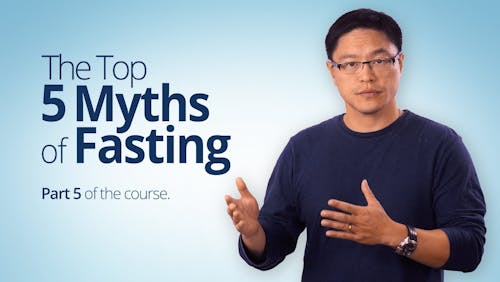
-
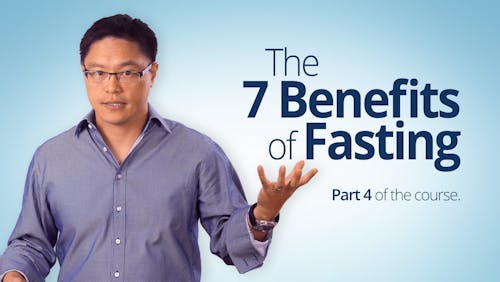
-
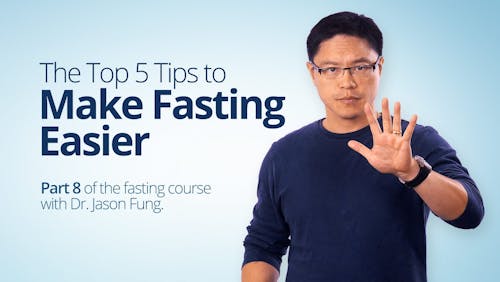
-
MEMBERS ONLY

-

-

-
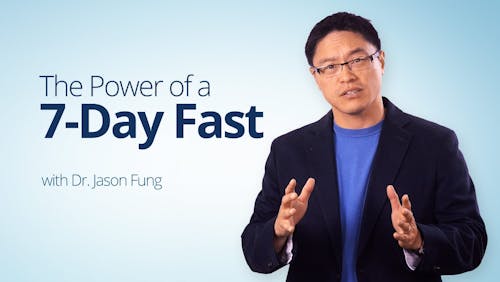
-

-
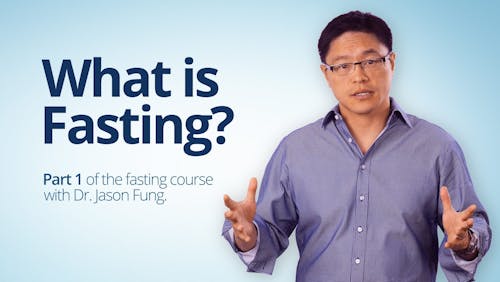
-
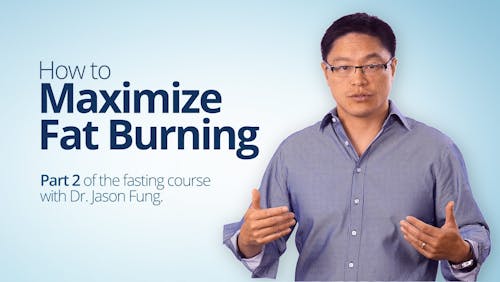
-
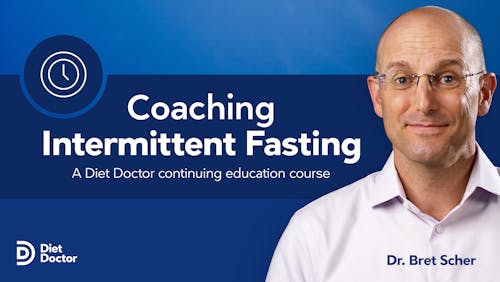
Interviews
-
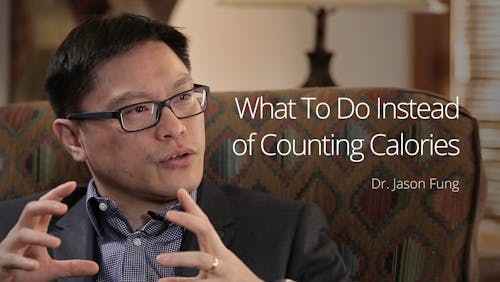
-
MEMBERS ONLY

-
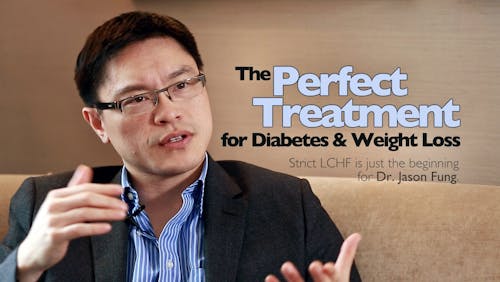
-
MEMBERS ONLY
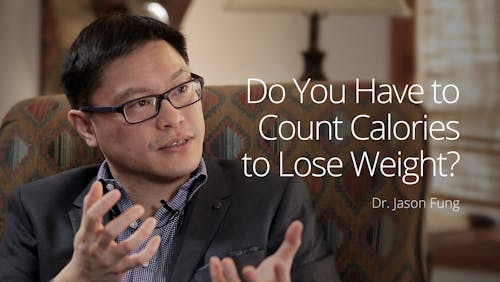
Presentations
-
MEMBERS ONLY
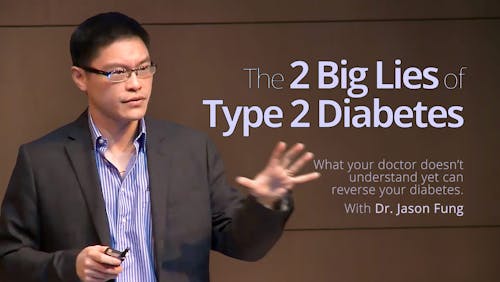
-
MEMBERS ONLY
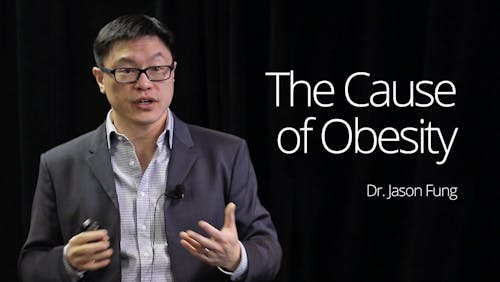
-

-
MEMBERS ONLY
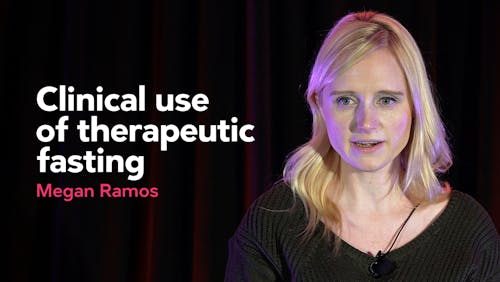
-
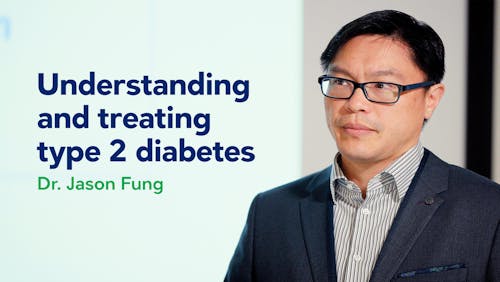
Intermittent fasting for beginners
– the evidence
Our intermittent fasting guide is based on scientific evidence, following our policy for evidence-based guides.
It's written by Dr. Jason Fung, MD, with the latest major update on January 24, 2020. Review and fact-checking by Franziska Spritzler, RD, and further research and fact-checking by Paul Rutkovskis. The guide was medically reviewed by Dr. Bret Scher, MD, on January 24, 2020.68
The guide contains scientific references. You can find these in the notes throughout the text, and click the links to read the peer-reviewed scientific papers. When appropriate we include a grading of the strength of the evidence, with a link to our policy on this. Our evidence-based guides are updated at least once per year to reflect and reference the latest science on the topic.
All our evidence-based health guides are written or reviewed by medical doctors who are experts on the topic. To stay unbiased we show no ads, sell no products and take no money from industry.69 We're fully funded by the people, via an optional membership.70
Read more about our policies and work with evidence-based guides, nutritional controversies, our writers team and our medical review board.
Disclaimer: While intermittent fasting has many proven benefits, it's still controversial. A potential danger regards medications, especially for diabetes, where doses often need to be adapted. Discuss any changes in medication and relevant lifestyle changes with your doctor. Full disclaimer
This guide is written for adults with health issues, including obesity, that could benefit from intermittent fasting. Learn more.
People who should NOT fast include those who are underweight or have eating disorders like anorexia , women who are pregnant or breastfeeding , and people under the age of 18 . Learn more.
Should you find any inaccuracy in this guide, please email andreas@dietdoctor.com.
Intermittent Fasting How Long Should You Do It For
Source: https://www.dietdoctor.com/intermittent-fasting
Komentar
Posting Komentar